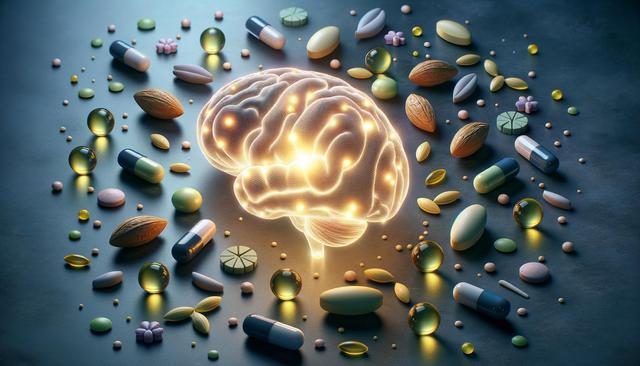The Role of Nutrition in Brain Function
Your brain is one of the most metabolically active organs in the body, and it requires a steady supply of nutrients to perform efficiently. Just as your body needs vitamins and minerals to stay physically healthy, your brain depends on specific nutrients to function at its best. A well-balanced diet that includes a range of vitamins can support mental performance, emotional balance, and long-term brain health. Cognitive decline, memory loss, and mental fatigue are often linked to nutritional deficiencies, underscoring the importance of proper dietary intake.
Among the nutrients that influence brain performance, vitamins play an especially critical role. They help regulate neurotransmitters, protect against oxidative stress, and support cellular repair. Some vitamins also aid in the production of energy in brain cells, which is vital for concentration and mental stamina. Incorporating these vitamins through diet or supplements—when advised by a healthcare professional—can make a noticeable difference in how you think and feel daily.
Vitamin B Complex: A Group That Fuels the Brain
The B vitamins are a group of water-soluble nutrients that are particularly important for brain health. Each member of the B complex has a specific role, but together they contribute to energy production, nerve function, and the synthesis of neurotransmitters. For example:
- Vitamin B1 (Thiamine) supports energy metabolism in brain cells.
- Vitamin B6 (Pyridoxine) is involved in the production of serotonin and dopamine.
- Vitamin B9 (Folate) and B12 (Cobalamin) help reduce homocysteine levels, which are linked to cognitive decline when elevated.
Studies have shown that adequate levels of B vitamins may help slow age-related memory loss and improve mood stability. People with diets low in whole grains, leafy greens, and legumes are often at risk of B vitamin deficiencies. Fortified cereals, lean meats, and eggs are also good sources. Supplementation may be recommended in cases of deficiency, especially for older adults or individuals with absorption issues.
Vitamin D: More Than Just Bone Health
While vitamin D is widely known for its role in maintaining bone strength, it also plays a significant part in brain health. It helps regulate the immune system and supports the health of neurons. Low levels of vitamin D have been associated with a higher risk of mood disorders and cognitive impairment, particularly in older adults. The brain has vitamin D receptors, which suggests its integral role in mental function.
Sunlight exposure is the most natural way to obtain vitamin D, but it can also be found in fatty fish, fortified dairy products, and egg yolks. In regions with limited sunlight or during winter months, supplementation might be necessary to maintain optimal levels. Ensuring adequate vitamin D intake could contribute to better focus, mood regulation, and protection against age-related cognitive decline.
Antioxidant Vitamins: C and E
Oxidative stress is a major factor in the aging process of the brain. Antioxidants such as vitamins C and E help counteract free radicals that can damage brain cells. These vitamins support overall brain health by preserving the integrity of neurons and supporting the immune system. They may also help reduce inflammation, which is often linked to neurodegenerative conditions.
Vitamin C is found in high concentrations in the brain and is essential for the synthesis of neurotransmitters like dopamine and norepinephrine. It also plays a role in protecting the brain from oxidative damage. Excellent sources include citrus fruits, berries, and bell peppers. Vitamin E, a fat-soluble antioxidant, is important for protecting cell membranes. It can be found in nuts, seeds, and vegetable oils.
Including these vitamins in your diet may help maintain memory and cognitive function, especially as you age. While more research is needed to confirm their long-term effects, their antioxidant properties make them a valuable part of a brain-supportive nutritional plan.
Choline and Other Nutrients to Watch
Though not a vitamin in the traditional sense, choline is an essential nutrient often grouped with B vitamins due to its similar functions. It is a precursor to acetylcholine, a neurotransmitter involved in memory and learning. Choline also supports the structural integrity of brain cell membranes. Eggs, liver, and soybeans are good sources of dietary choline.
In addition to choline, other brain-boosting compounds include:
- Omega-3 fatty acids: Support neuron structure and communication.
- Magnesium: Plays a role in nerve signal transmission and may reduce anxiety.
- Zinc: Important for modulating brain signaling and memory processes.
These nutrients work in synergy with vitamins to support overall brain function. A holistic approach to brain health includes not only these nutrients but also proper hydration, regular physical activity, and sufficient sleep. When combined, these lifestyle choices can enhance mental clarity and emotional well-being.


